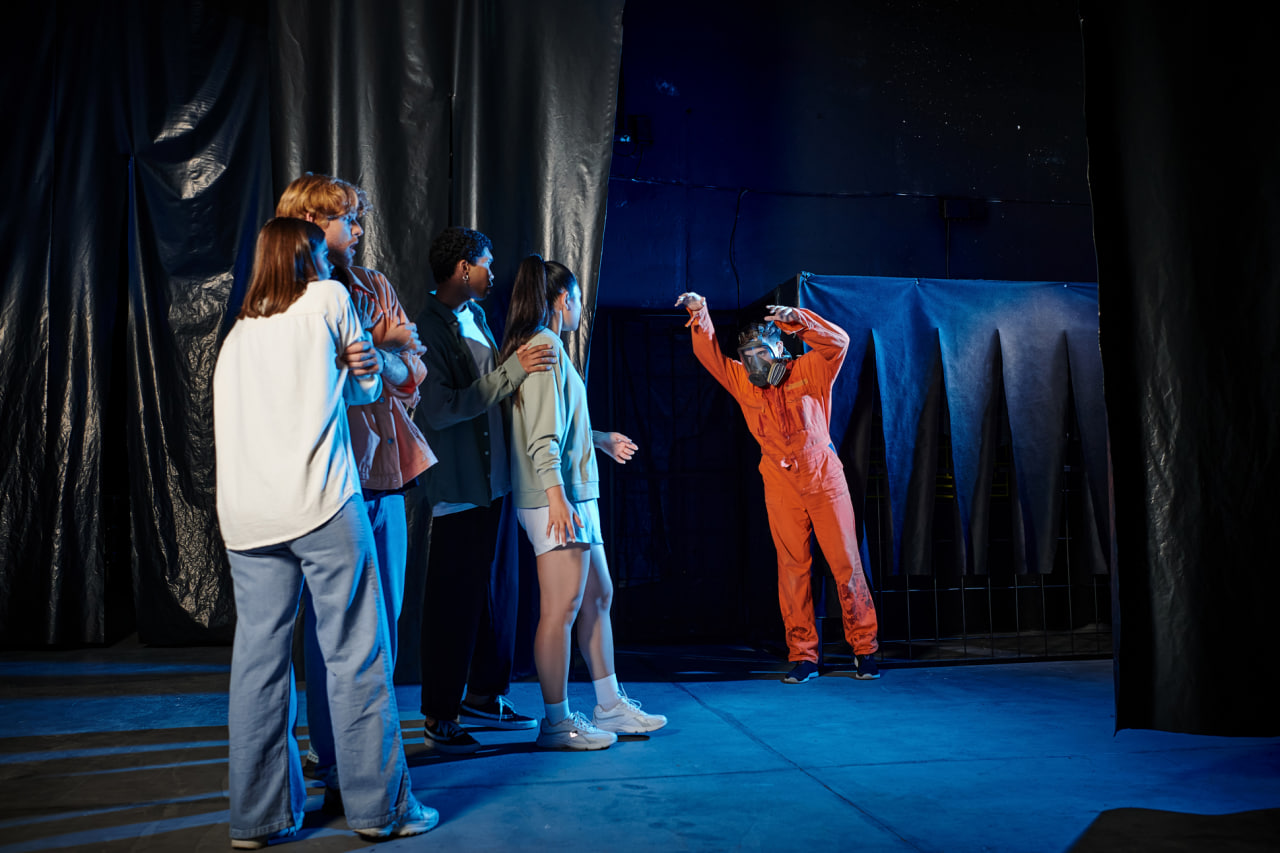Improvisation is one of the most dynamic and influential tools in contemporary theatre. It is not just an exercise for warming up or filling gaps in rehearsal schedules; it is a fundamental method for developing creativity, spontaneity, and connection on stage. By embracing improvisation, actors, directors, and theatre enthusiasts gain the ability to respond authentically, adapt to unexpected situations, and breathe life into every performance.
Unlocking Creativity
At its core, improvisation encourages artistic freedom. Unlike scripted performances, improvisational exercises ask performers to think on their feet and create characters, dialogue, and scenarios in the moment. This freedom allows actors to explore new ideas without fear of making mistakes. Over time, improvisation strengthens creativity, helping performers develop a personal style and voice that enhances all aspects of their work.
Improvisation is not limited to comedy or light-hearted exercises. In modern theatre, it can be used to experiment with dramatic tension, explore character motivations, and discover emotional truths that may not be explicitly written in a script. By practicing improvisation, performers learn to trust their instincts and respond honestly to the moment, which often leads to more compelling performances.
Enhancing Collaboration
The collaborative nature of improvisation is another reason it is so valuable in modern theatre. Successful improvisation requires active listening, awareness of fellow performers, and the ability to adapt quickly. These skills cultivate trust and communication within an ensemble, making rehearsals and productions smoother and more cohesive.
Improvisational exercises also foster inclusivity in the creative process. Every participant contributes ideas, which encourages dialogue, mutual respect, and shared ownership of the performance. The collaborative skills developed in improv are not only useful on stage but also translate into effective teamwork off stage in workshops, projects, and creative environments.
Developing Stage Presence and Confidence
Improvisation challenges performers to step into the spotlight without a predetermined plan. This builds confidence, reduces performance anxiety, and strengthens stage presence. Actors learn to embrace uncertainty and remain calm under pressure, knowing that every moment on stage is an opportunity to explore and connect with the audience.
Through repeated improvisational practice, performers also develop stronger vocal projection, physical expressiveness, and emotional authenticity. These qualities enhance any scripted performance, as actors become more adaptable, present, and engaging.
Improvisation as a Tool for Innovation
Modern theatre often seeks to push boundaries, break conventions, and tell stories in unexpected ways. Improvisation provides the foundation for innovation by encouraging experimentation and risk-taking. Directors can use improvisational exercises to generate new scenes, explore alternative endings, or create unique character interactions.
Many contemporary performances incorporate improvisation directly into the final production, allowing moments of unpredictability that make each performance fresh and alive. This approach keeps audiences engaged and creates a sense of immediacy and authenticity that scripted theatre alone cannot always achieve.
Personal Growth Through Improvisation
Beyond technical skills, improvisation offers profound personal benefits. It encourages self-awareness, adaptability, and resilience. Participants learn to handle surprises gracefully, think creatively under pressure, and embrace the unexpected with curiosity rather than fear.
Engaging in improvisation regularly can also improve communication skills, empathy, and emotional intelligence. By stepping into various roles and responding to unpredictable situations, performers gain insight into human behavior and develop a deeper understanding of themselves and others.
Incorporating Improvisation Into Your Practice
For students and aspiring actors, incorporating improvisation into daily practice is highly recommended. Simple exercises such as spontaneous dialogue, character creation, and scene-building can be practiced alone or with peers. Regular participation in workshops, group exercises, and live improvisation sessions will further enhance skills and confidence.
The power of improvisation lies not in perfect execution but in willingness to experiment, take risks, and stay present. By embracing improvisation, performers unlock a level of creativity and adaptability that elevates all aspects of their theatre work, transforming both their craft and their experience on stage.

